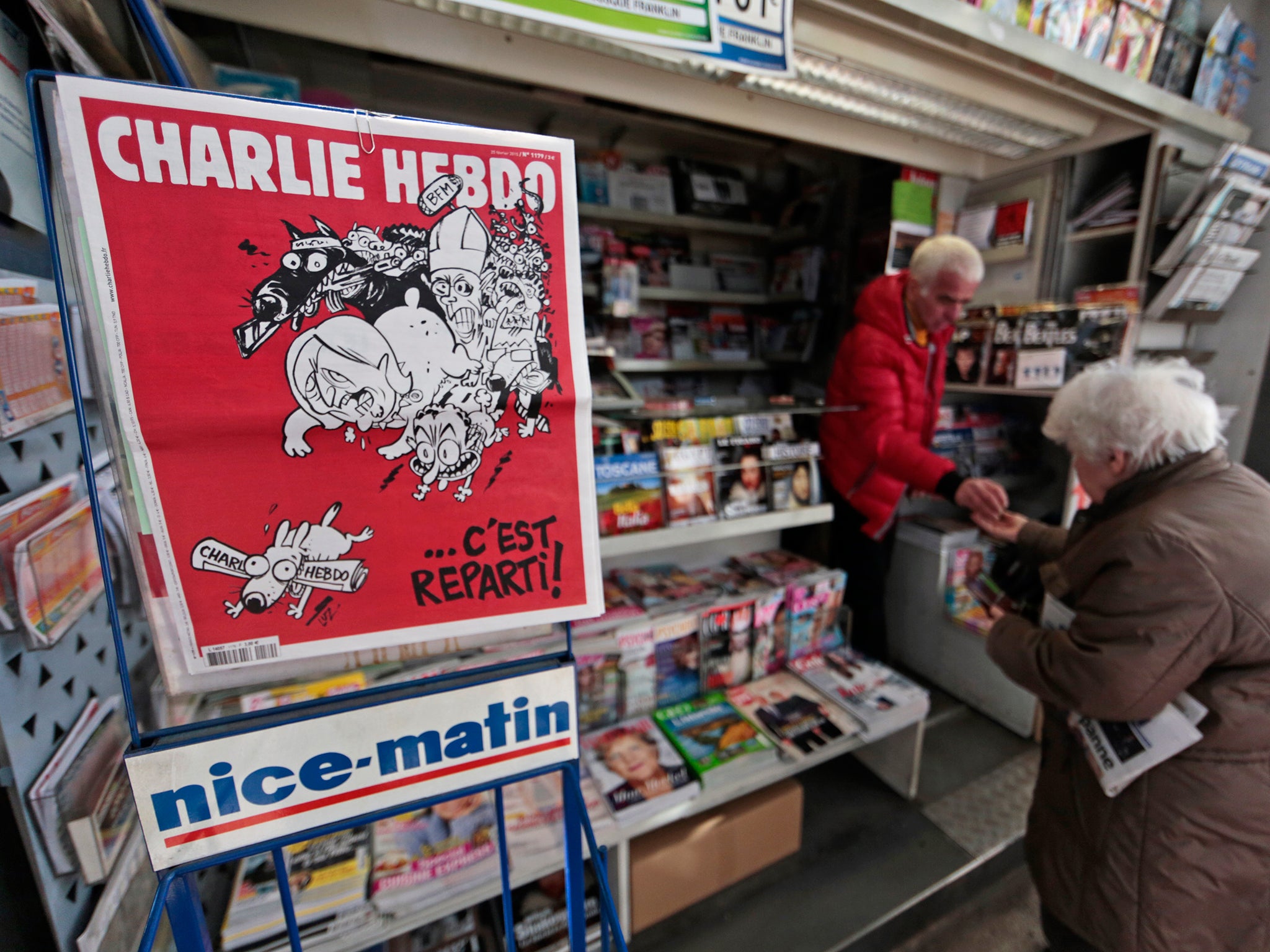The Charlie Hebdo cartoon about Aylan Kurdi and sex attackers is one of its most powerful and important
The cartoon doesn't poke fun at refugees - it pokes fun at the fickleness of people in the West

Did French satirical magazine Charlie Hebdo suggest that a Syrian child who died on his way to a better life would have grown up to be a sex attacker? If you looked at Twitter this week, you might believe so.
The cartoon in question suggests that Aylan Kurdi, the toddler who made headlines after his dead body was photographed on Turkish shores, would have grown up to be an “ass groper in Germany” [translated from the French].
It referred to mass reported sexual assaults in Cologne, Germany, on New Year’s Eve, allegedly by migrants and asylum seekers.
Many people, including prominent journalists, have angrily condemned the magazine, calling it “disgusting,” “racist,” and a “disgrace to humanity”.
The cartoon was drawn by Laurent Sourisseau, who was in the Charlie Hebdo offices last January when his colleagues were shot dead by terrorists.
This attack was followed by defiant protests in support of our freedom of speech, including Charlie Hebdo’s cartoons. Sadly, it would seem those values can be dropped in an instant when one cartoon is met with offence.
Toddler Kurdi has been used several times before by the magazine because his story is hugely symbolic of Western attitudes to the refugee crisis – and never more so than now.
The wide circulation of the image of Kurdi’s body, and the public uproar this caused, jolted politicians from across the EU into action, with many vowing to take in more migrants.
The image has become even more symbolic now that, following the alleged attacks in Cologne, public opinion has shifted. Merkel’s open-door policy has received more criticism after being slowly welcomed by the public, and a third of Germans report having more negative views of asylum seekers since the attacks.
After exhorting that every life matters and that we have a duty to help those born into dangerous circumstances, we are now at risk of taking one isolated event and conflating it with everyone under the same identity. In many cases, those whose knee-jerk responses to Aylan Kurdi’s body were, “I’m crying for Aylan! We must do something now!” have equally jumped on the “Close the gates – there’s no more room for sex attacker refugees” bandwagon.
This is such a ridiculous thought that we must laugh at it. The cartoon isn’t an attack on migrants. It’s an attack on our own fickleness. We can’t enjoy satire that holds politicians to account while condemning anything directed towards ourselves.
Satire has survived for centuries by ridiculing power, ignorance and tragedy. It’s a coping mechanism for the things we don’t have the power to change. And we need it more now than ever before.
We shouldn’t be shutting down insights into our behaviour – we should welcome the scrutiny. And, most importantly, we should laugh.
Join our commenting forum
Join thought-provoking conversations, follow other Independent readers and see their replies
Comments